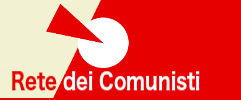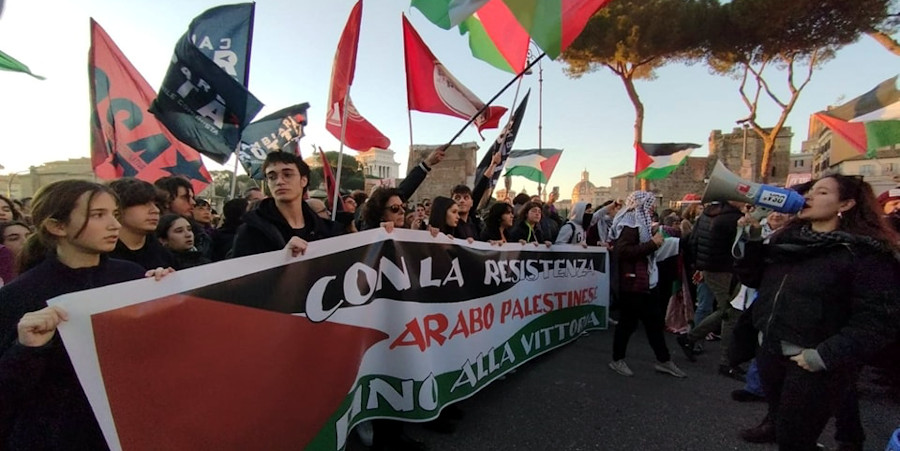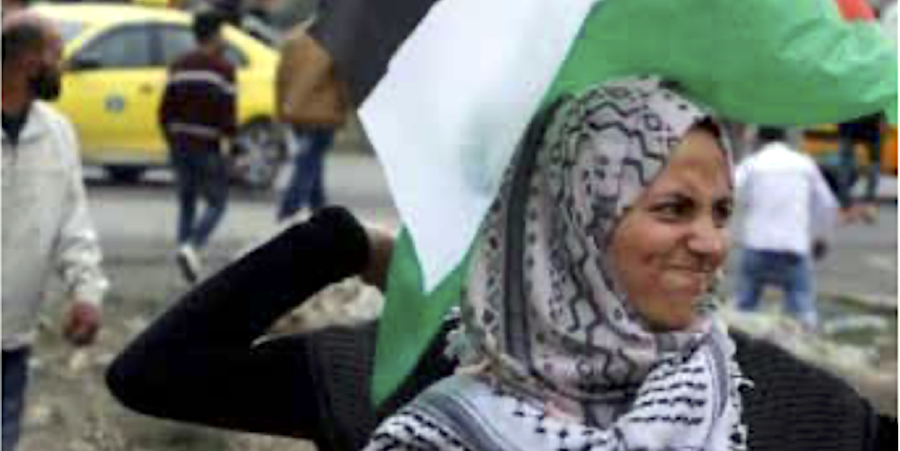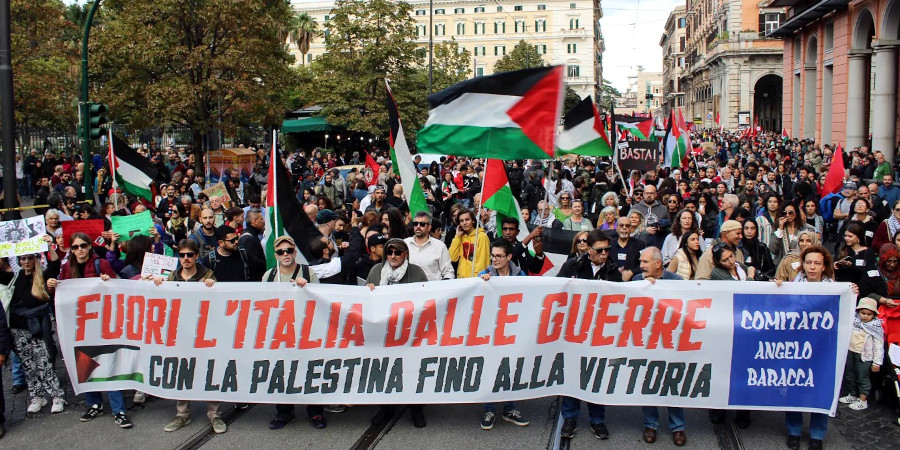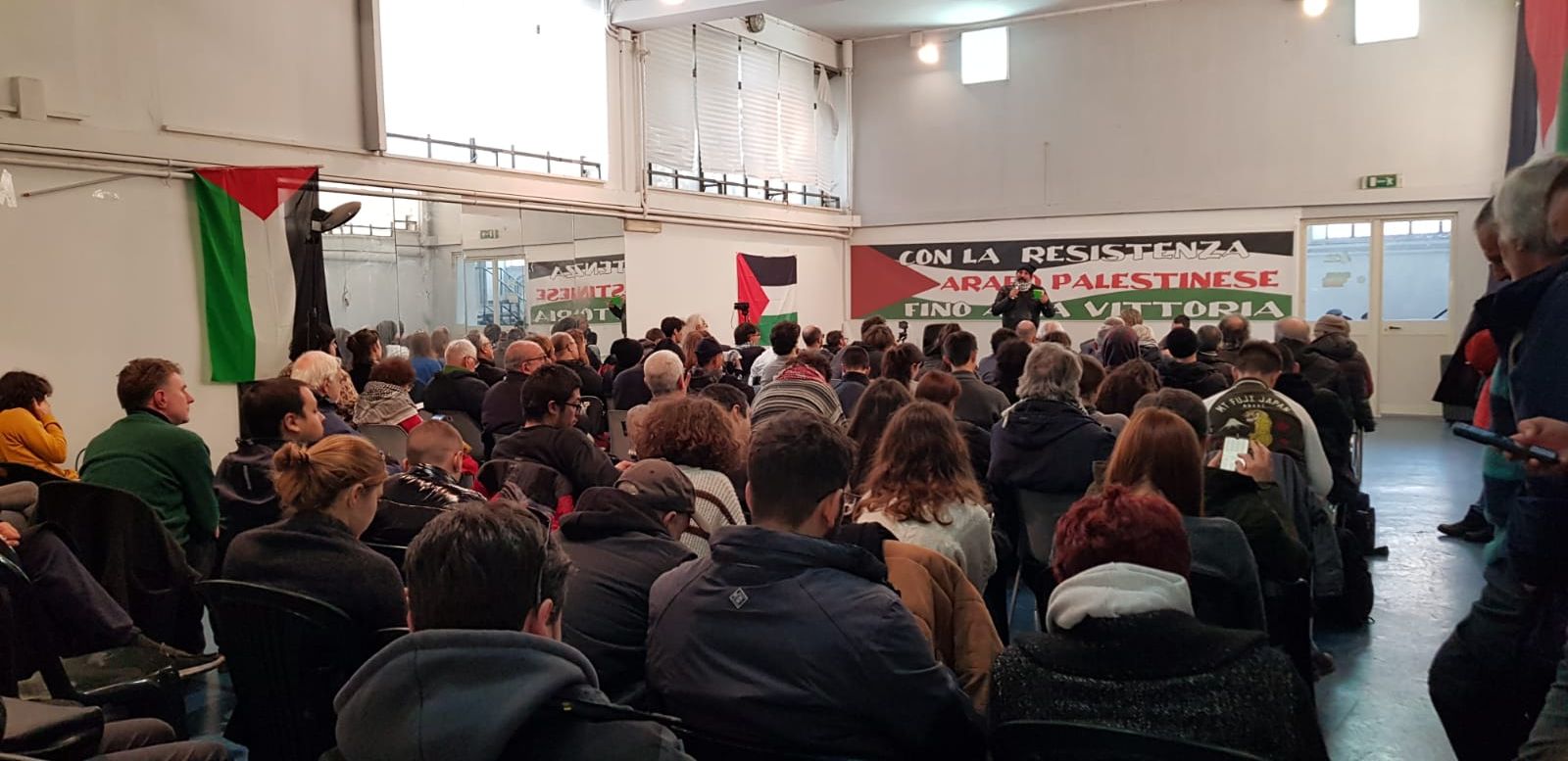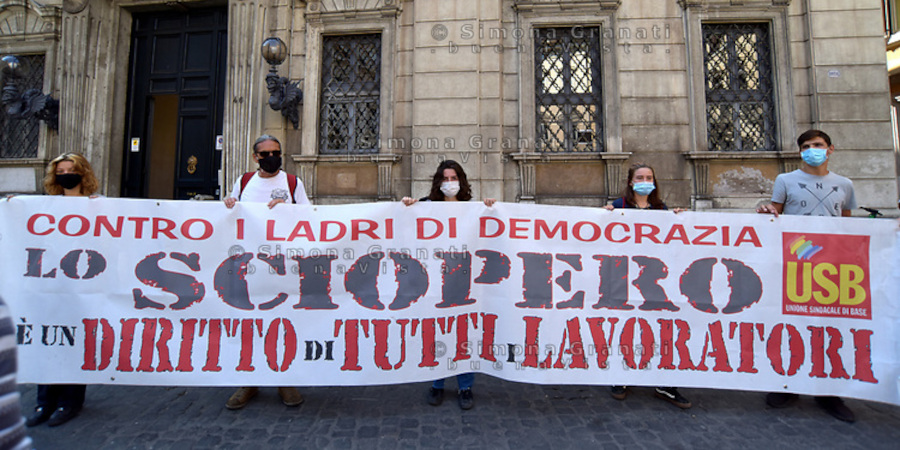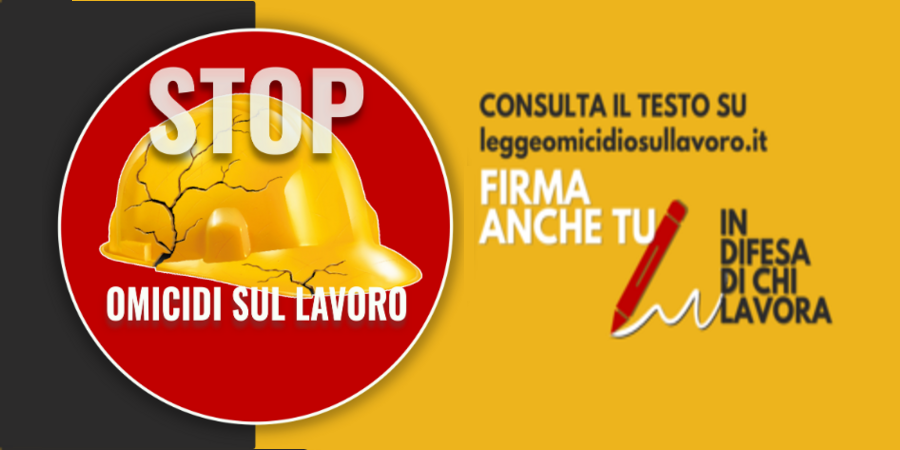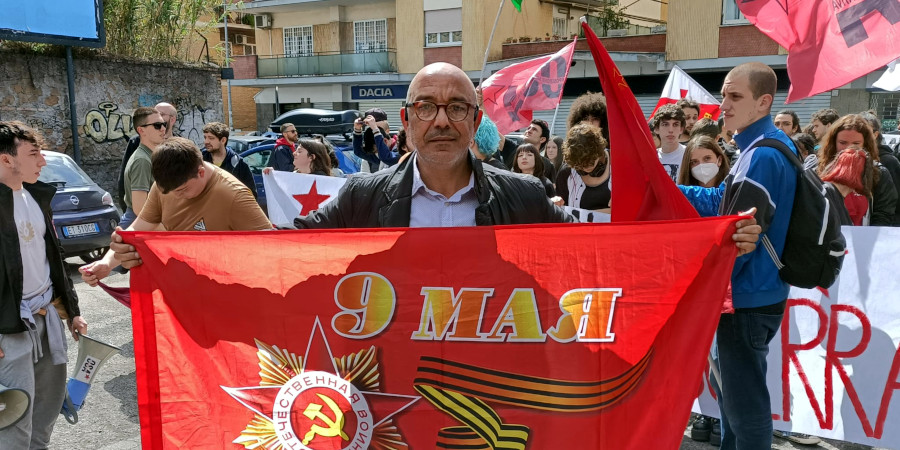| english | español | français | italiano |
Rete Dei Comunisti in International Bulletin January 2024
The western flight from Afghanistan in the summer of 2021 and the gradual ousting of France (and others) from the Sahel were two of the major flashpoints – from a military point of view – of western hegemony in contexts that – except for brief periods – have been pivots of imperialist domination.
The events in Afghanistan and Sahel showed the inherent weakness of Western imperialism in maintaining a neo-colonial dynamic by militarily occupying, politically subjugating and economically exploiting those territories.
These two episodes were the plastic representation of a change in the world power relations in a context where the path of disengagement from the western supply chains and the concrete possibility of entering into a configuration of relations that sets aside neo-colonial logic is increasingly viable.
With the development of the current Israeli-Palestinian conflict, this Western decline has become more and more evident, especially in the face of the determined response on a regional scale of the Resistance forces that are increasingly giving Israel and its allies a hard time.
They include Hezbollah in Lebanon, which defeated Israel in 2006 after having previously forced it to withdraw from the south of the country in 2000, the ‘Shia’ Resistance in Iraq, which constantly targets the US contingents in the country and Syria, and the Yemeni ‘rebels’ whose military capacity and popular consensus have matured from years of resisting the Saudi-led coalition and one of the most advanced fighting traditions in the entire Middle East.
If the fates of Zionism have always been tied by a double thread – in a relationship of mutual implication – to those of the Euro-Atlantic bloc, it is clear that it is necessary to situate the political significance of the Palestinian Resistance in the current historical phase within a broader conflict and on a regional scale.
A context in which the twilight of Western hegemony and the affirmation of an effectively multipolar world are intertwined: within a framework of an ever-increasing tendency towards war and the inability – on the part of those who have been the gendarmes of the Capitalist Mode of Production – to diplomatically resolve the conflicts they have inherited and helped to foment.
We are also in an epochal transition, which does not seem to be ‘peacefully’ shaped today.
This is happening in a region where Western hegemony has been challenged by regional powers – such as Iran – , by the arc of resistance of the so-called Shia Crescent, and by global geo-political actors such as the Russian Federation and the People’s Republic of China, which in a sense lead the redemption of the Global South in the multipolar world.
In addition, even countries that were historical pawns of Western hegemony on the ground such as Turkey – a NATO member – and Saudi Arabia have long since begun to design their own development model and the framework of their economic-diplomatic relations in a way that is more disengaged from US plans.
In this dynamic of affirming an order different from that prefigured by the US, two events have particularly marked the fate of the ‘Middle East’.
The first, in order of time, is Russia’s intervention in Syria against the jihadist insurgency in the autumn of 2015, which contributed to the failure of Western destabilisation plans in the proxy war against the Arab country.
The second was the beginning of the normalisation of diplomatic relations between Iran and Saudi Arabia – with the simultaneous opening of a political-diplomatic solution to the war in Yemen – thanks to Chinese mediation in the spring of last year.
Not of lesser impact were the unsuccessful attempts to make Iraq a Western protectorate after having invaded and occupied it since 2003, and to crush the Islamic Republic, or at least to bring about the emergence within it of a more ‘dialoguing’ leadership with the West.
The new-found protagonism of the Arab League promoted by Algeria should also be underlined. It was precisely the Arab League, on the initiative of Algiers, that had put the Palestinian struggle back at the centre of its agenda and then welcomed Syria back into its ranks, laying the foundations for a greater autonomy of the Arab bourgeoisie in opposing the normalisation process with the Zionist entity.
If on the military level the Israeli-Palestinian conflict has taken on a regional dimension – as it has, mutatis mutandis, several times since 1948 – on the political level it has become internationalised with South Africa’s action at the UN’s International Court of Justice, supported by an ever-widening arc of countries and forces.
This action not only literally puts Israel’s actions on trial, but its Western complicity, and constitutes a punch in the stomach for those who have set themselves up as spokesmen and champions of ‘human rights’, but who remain mute and passive in the face of genocide.
The ‘Al-Aqsa Flood’ operation conducted by Hamas on 7 October confirmed that there can be no peace in the Middle East without the fulfilment of historic Palestinian claims.
At the same time, he pointed out that the mechanism of military escalation in the region cannot be reversed unless action is taken on its major vector: Israel.
It is in this new phase of the end of the stalemate in the confrontation between political blocs worldwide and the militarisation of international relations that the conflict on a regional scale must be analysed and understood.
This is why we are organising a day of in-depth analysis, confrontation and public debate on Sunday 25 February from 10 a.m. in Milan at the family circle of Proletarian Unity, 140 Viale Monza.
